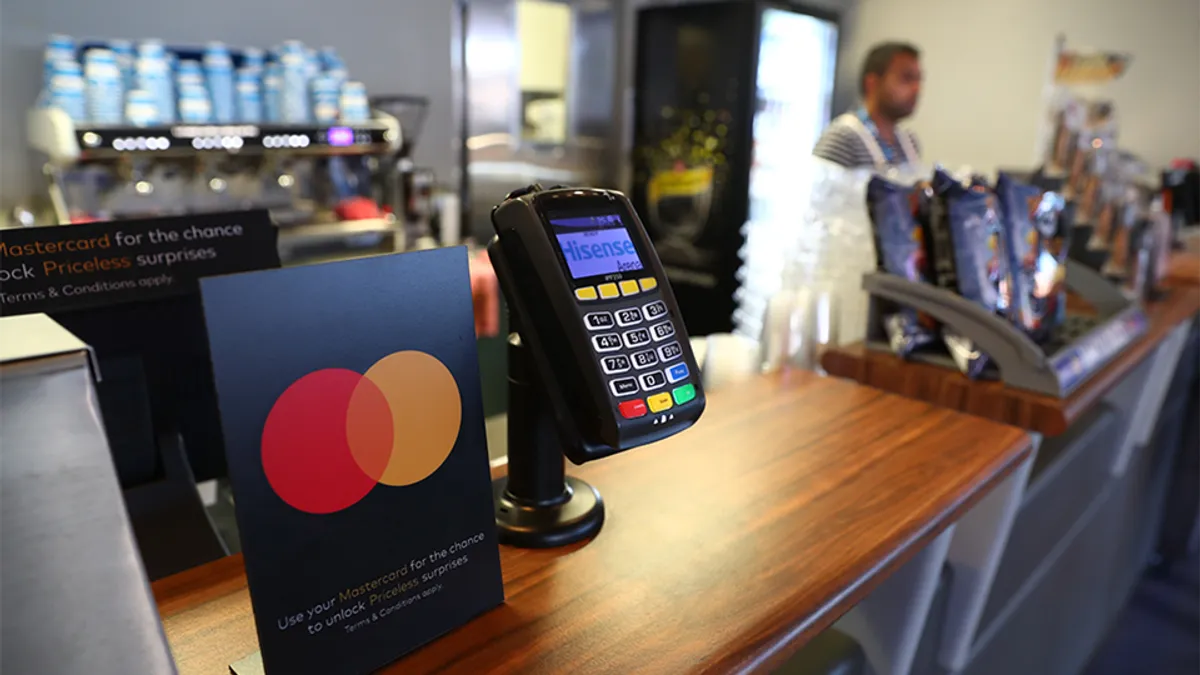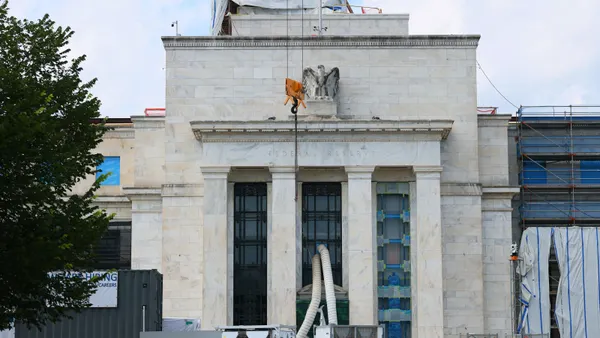Despite worries about Russia’s invasion of Ukraine, inflation hitting a multi-decade high and an unexpected slowdown in the U.S. economy, Mastercard Chief Executive Michael Miebach on Thursday struck an optimistic note about the card company’s prospects, given a pick-up in the company's cross-border business during the first quarter.
“Even in the context of this challenging geopolitical environment, we’re off to a strong start in 2022 with robust revenue and earnings growth as cross-border volumes grew 53% versus a year ago on a local currency basis," Miebach said in a statement on the company's first quarter earnings results. "As of March, cross-border travel is above 2019 levels for the first time since the pandemic began, and ahead of our expectations."
Miebach also noted that consumer behavior hasn't been affected by inflation, which hit a four-decade high of 8.5% in March because of pent-up demand lingering from the pandemic.
First-quarter net income at the Purchase, New York-based company rose 44% to $2.6 billion, from $1.8 billion for the year-earlier period. Revenue jumped 24% to $5.2 billion, also helped by strong consumer spending as coronavirus pandemic restrictions faded with a drop in cases.
"Certainly cross-border recovery is playing into the recovery and operating margins," Chief Financial Officer Sachin Mehra said during the company's earnings conference call. "But it's not just about cross-border. It's about overall consumer spending, and cross-border travel recovery, all of which is contributing to the delivery of improved operating margins."
Cross-border and consumer spending gains offset the impact of the company's business shutdown in Russia and exit from Ukraine in the wake of international sanctions. Mastercard disclosed in March that about 4% of its annual revenue derives from business related to Russia and about 2% derives from Ukraine.
By contrast, larger rival Visa earned about 5% of its revenue in fiscal year 2021 from Russia and Ukraine. Like Mastercard, Visa has also benefited from a surge in cross-border activity this year. San Francisco-based Visa said earlier this week that international payments volume rose 38% for its fiscal second quarter ended March 31.
Visa and Mastercard “are benefiting from improving underlying fundamentals, secular growth trends (increased percentage of card-not–present volume, growth in contactless payments), faster-growing services revenue and the embrace of newer payment flows beyond traditional cards," according to Cowen Equity Research Analyst George Mihalos.
Mastercard, though, has plenty of challenges that lie ahead. While commercial spending by large businesses is growing, it remains well below 2019 levels “with a likely multi-year recovery path,” according to an April 28 client note from Mihalos.
At smaller rival American Express, travel and entertainment spending on the American Express card more than doubled during the first quarter, on a year-over-year basis, though it still lags its pre-pandemic level. Future bookings for travel are currently about 37% higher in the U.S. and about 48% higher globally than they were in 2019, Amex CEO Stephen Squeri said on an earnings call with analysts last week.














